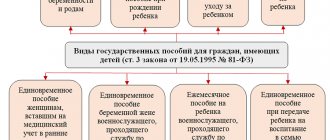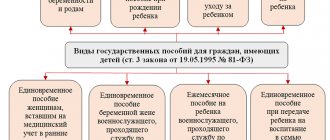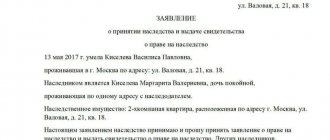Any family whose income is below the generally accepted subsistence level in the region can receive a subsidy this year. According to state legislation, the share of expenses for housing and communal services for each family should not exceed the permissible limit - 22%. In this case, 100% is total income, which includes scholarships, salaries and pensions. Pensioners, veterans, disabled people, single mothers and other citizens who belong to socially vulnerable groups of the population also have the right to receive assistance.
Receiving benefits is possible after submitting a package of documents and an application in a certain form. However, one should not assume that this social program has no restrictions. Families with students and unemployed persons must submit additional certificates. To apply to the multifunctional center to receive benefits, you must bring a document that officially confirms your income level.
You cannot apply for a subsidy for an apartment for which there is arrears. An exception is the situation in which the property owner has taken the measures necessary to restructure the debt. An official document confirming these actions is the reason for approval of the application for a subsidy.
Receiving government assistance to pay for housing and communal services
Subsidization is compensation paid from budget funds to people classified as low-income. Before finding out exactly how benefits are issued, you should consider a number of mandatory conditions for receiving them. These include:
- no debt on utility bills;
- the level of income per citizen should not exceed the subsistence minimum.
Let's look at an example. The average monthly income in a family of two people is 21 thousand rubles. 4 thousand 850 rubles are spent on paying for housing and communal services, which is 23% of the total amount. In all respects, this family has the right to apply for government assistance.
If the accrual of payments is approved, the money will be transferred to the applicant using the details specified in the application. Compensation funds are accrued monthly until bills for housing and communal services are generated. Financial assistance is provided only for six months. After this period, a package of papers is again formed and submitted for consideration.
We’ll talk further about what documents are needed to apply for and receive a subsidy for utility bills.
Differences between a subsidy and a grant
A grant is the provision of funds to perform certain work or provide services. For example
Types of grant:
- Social. Designed for the implementation of social programs.
- Educational. The university thus encourages talented students who get the chance to go abroad to receive additional education.
- Charitable. Often requested by organizers of various shelters.
- Grant for business development. Municipal authorities often provide grants to businessmen for the development of entrepreneurship that plays a socially significant role.
In each situation, an application is filled out, which details the purpose of the funds: construction, purchase of equipment, purchase of medicines or feed, and other details.
After spending, the recipient must submit a report on what expenses were incurred and what results were achieved.
A subsidy, unlike a grant, is direct government support. It does not involve doing any work in return.
Who is entitled to preferential payments?
State subsidies for housing and communal services are federal benefits. They are available to citizens of all regions of the Russian Federation who have grounds for receiving them.
The following may count on subsidies:
- tenants of public housing;
- persons renting housing from private landlords;
- participants in housing associations (cooperatives);
- owners.
People with different marital statuses can apply for financial assistance. Among those particularly vulnerable in terms of income are:
- pensioners;
- single mothers;
- unemployed people officially registered with the Employment Center;
- the poor;
- large couples;
- disabled people.
When finding out what documents are needed for compensation, what is needed to receive a housing subsidy in the department of the same name (OZHS), you should know that foreigners can also count on benefits. A prerequisite for them is the existence of an international agreement with the Russian Federation. For example, visitors from Kyrgyzstan or Belarus are entitled to government assistance, since Russia has concluded a corresponding agreement with these states.
A foreign applicant must meet certain requirements:
- have official registration in the house or apartment;
- spend an amount exceeding the established subsistence level on payment for housing and communal services;
- not be a debtor.
An important condition when assessing the possibility of receiving compensation payments is the footage. For one person there is a maximum of 33 residential square meters, for two - 42 m², and for three or more - 18 m² each.
If the area exceeds the specified parameters, subsidies will be denied. Also, state financial assistance is not available to persons who do not have permanent registration at their place of residence (where registration is planned) and to renters without registration.
Subsidizing regional and municipal budgets
The budget system of the Russian Federation is a vertical system. The bulk of tax contributions received locally are transferred to the federal budget, then sent back in the form of subsidized payments and various subsidies in order to fulfill certain obligations.
The subsidy is intended to jointly finance the costs of local budgetary institutions. For example, a constituent entity of the Russian Federation provides funds to the municipal budget to pay teachers’ salaries. Such financial support is provided to areas that lack local tax funds.
Income level to qualify for compensation
The ability to receive benefits from the state largely depends on regional policy. The right to claim preferential accruals is determined not by the specific amount of family income, but by what share it spends on housing and communal services payments.
In Moscow, for example, it will be possible to obtain a subsidy if utility costs amount to more than 10% of total income. In St. Petersburg, you can enlist government help only when the cost of housing and communal services exceeds 14%. In Voronezh, subsidies are provided for payment for utility services in the amount of 10-18% of total income:
- 15 percent for large families, single pensioners, single mothers and people living in low-rise residential buildings, in which heating is provided by companies at inflated rates;
- 10% is relevant for those whose income does not reach the subsistence level.
To make the calculation, you need to add up the earnings/pension received (other documented accruals) for the last six months and compare the total amount with the amount of mandatory expenses for utility bills. If the result is more than 22%, citizens have the right to apply for government benefits. It is important to understand that only material wealth that is officially registered is taken into account.
Before preferential payments are accrued, government officials will once again carry out calculations, taking into account the average amount of a citizen’s income over the last 6 months and the percentage required to cover housing and communal services bills. If the amount equals or exceeds the established standards, submitting documents to receive a housing subsidy will become possible.
Forms of payment
The following forms of subsidies are distinguished:
- Direct. Funds are paid in cash or non-cash to the recipient, after which he independently purchases products or pays for services.
- Indirect. Money is paid directly from budget sources: to repay the interest on the loan, to a medical institution to cover medical expenses and other costs. The recipient of payments is requested to provide documentation confirming the actual event.
- Cross. Compensating the expenses of one industry with the profits received from another. For example, some constituent entities of the Russian Federation include in the tariff for electricity services for legal entities compensation for losses resulting from curbing electricity prices for individuals. This situation reflects the subsidization of individuals at the expense of legal entities as cross-financing.
Attention!
Material assistance is provided either in cash (cash or non-cash), or as interbudgetary transfers, in cases where a higher budget subsidizes a lower one.
Income taken into account when calculating
When forming compensation accruals, all types of earnings are considered.
- Salary, bonuses, business and investment profits, etc.
- Money received from the sale or rental of real estate.
- Subsidies for foster or ward minors.
- Child benefits received once a month.
- Other types of payments that compensate for utility bills. Subsidy money for covering housing and communal services is not included in the total amount. Conditional discounts for paying for living space and utilities are also taken into account.
When carrying out settlement activities, the income of both the applicant and his relatives is recorded: husband or wife, father, mother, adoptive parents.
Main types of current state support in the form of subsidies
For the social security of citizens, the legislation of the Russian Federation has developed three types of subsidies:
- For the acquisition or construction of real estate.
- To pay for housing and communal services and housing.
- Payments to officially unemployed citizens engaged in business development.
Additionally, there are subtypes of subsidized support:
- persons with a disability group;
- large married couples;
- low-income categories of citizens;
- covering medical expenses in the form of purchasing medications and paying for expensive treatment.
Information confirming income: documents for obtaining a housing subsidy
Lack of official earnings may prevent you from receiving compensation payments. To overcome this obstacle, you will need to document the cause of the disability.
The supporting documentation usually includes:
- certificates from primary and secondary educational institutions;
- papers about non-receipt of a scholarship at an educational institution;
- medical certificate of registration for pregnancy;
- information about the woman being on maternity leave;
- information about undergoing long-term treatment in a hospital;
- certificate of deprivation of liberty of a citizen;
- papers on conducting search activities if a person is considered missing.
In what cases will the subsidy stop being paid?
According to Oksana Krasovskaya, there are four cases in which money will stop being transferred to your account:
- You haven't paid your utility bills for two months.
- The recipient of the subsidy changed his place of residence and did not notify the social security authorities about this within a month after the move.
- The composition of the subsidy recipient's family changed, and he did not report this to the social security authorities within a month.
- The recipient of the subsidy does not comply with the terms of the agreement to repay the debt.
To find out about violations, the social protection authority only needs to periodically contact the management company and the migration department of the Main Directorate of the Ministry of Internal Affairs of Russia for your region. In the first organization they find out about the debts, in the second - that a new tenant has registered in your apartment or you have checked out of it.
First, the social security authority will suspend the payment of the subsidy for 30 days, notifying you of this in writing within five days, and will try to find out whether you had good reasons for the violations (long-term hospital treatment, death of a relative, delayed wages, etc.). If yes, you will be paid for the missed month, and further payments will go according to schedule.
If there are no valid reasons, the subsidy will no longer be paid. You can re-issue payments when all the shortcomings have been eliminated. In this case, you will have to collect the documents to apply for the subsidy again.
Submitting an application
An application for accrual of benefits is submitted in person to a government agency, through an online service (government services) or by mail. But only the owner or tenant of the property has this opportunity. A citizen who is a family member can carry out registration using a previously drawn up power of attorney. In addition, compensation payments can be issued to a person who serves in the army, is in prison or is undergoing compulsory treatment.
Documents required to receive a subsidy
To receive subsidized funds to pay for housing and communal services, you need to collect a package of papers. Among them:
- passports of all program participants;
- birth certificates of children under 14 years of age;
- documentation confirming the right to use an apartment or house;
- payment checks and receipts according to which payments for housing and communal services were made previously;
- documentary evidence of income or lack thereof from all family members;
- details for transferring funds;
- an application for a subsidy drawn up in accordance with all the rules.
If the application is submitted by an authorized person, a corresponding document (power of attorney) is required.
To confirm your level of income, you will need to collect several certificates, including an extract from your place of work on your income for the last 6 months. If there are other benefits issued by the state, you will need data on their amount.
Before submitting a request for information, find out exactly what documents you need to collect yourself. The center requests some information without the participation of the applicant.
Differences between subsidies and compensation
The special feature is the payment period. A subsidy is provided to the recipient to spend on certain needs, and compensation reimburses him for the amount already spent on purchasing something.
For example, agricultural producers may be provided with subsidized funds for the purchase of equipment or machinery: they received funds and purchased a combine harvester. Or part of the interest rate on the loan may be paid as compensation. I purchased a combine harvester on credit, paid off the payment on it and received partial compensation for the payment.
Attention!
Subsidization is more convenient than compensation, since it does not require finding personal or credit money to make a purchase.
Why may they refuse, suspend or stop payments?
Refusal to accrue compensation funds may occur if:
- the applicant for benefits did not provide all documents;
- he provided incomplete or unreliable data (hid his real income).
Suspension of subsidies is possible when:
- payment for housing has not been made for more than two months;
- the terms of the agreement concluded with the utility company regarding debt coverage were violated;
- the person for whom the benefits are issued has changed citizenship (moved to another country);
- the level of income or family composition has changed.
The accrual of compensation is suspended for 30 calendar days. During this time, an inspection is carried out. Be sure to find out why the recipient of government assistance did not pay housing and communal services bills on time or did not pay off debts as agreed. If circumstances are deemed extenuating, payments will resume.
A complete cessation of subsidies occurs when:
- the citizen receiving government assistance now has a different citizenship;
- the average level of income per person increased to the subsistence level;
- by providing the package, the applicant intentionally submitted false information for consideration;
- payments for utility services have not been made for a long period.
When your financial situation changes for the better and the right to receive compensation loses its relevance, we recommend that you immediately inform the representatives of the OHS about this. Otherwise, the department will seek the return of government money once the changes are discovered and confirmed.
Who can apply for subsidies
Both individuals and legal entities can receive subsidies in Russia.
Individuals
According to Russian legislation, the list of citizens to receive subsidies includes:
- low-income and large married couples;
- citizens who need improved living conditions;
- unemployed;
- disabled people, as well as representatives of other social categories;
- affected by external factors.
Legal entities
Eligibility for subsidized payments can be defended by:
- state and municipal enterprises;
- commercial companies for the purpose of partial reimbursement of expenses or lost income in accordance with certain areas of activity;
- non-profit companies for the implementation of social programs.
Separate subsidies are transfers from higher budgets in favor of lower ones. Such payments are provided for various needs, for example, for the construction of kindergartens and schools or road repair work.
How to apply for an apartment subsidy in special situations
The family of the owner or the tenant of the property can begin to apply for preferential accruals when the owner:
- is undergoing military service;
- is in prison;
- declared missing;
- declared dead;
- compulsorily treated in accordance with a court decision.
Their relatives may qualify for payments if they continue to live in this house or apartment. In addition to the general package of papers, in this case the following is attached:
- documentation confirming the position (for example, a court order);
- evidence that members of the family permanently lived with the owner on the premises before changing his location.
If more than just family members live in the apartment
Situations like this are rare, but you should find out all the necessary information about them. When other people are registered in the house with you and your loved ones, additional papers must be attached to the completed package:
- certificates confirming payment for repairs, maintenance of housing and utilities, which are transferred by persons not specified in the application for benefits;
- objective reasons why these citizens live in the house.
Main features of a subsidy
There are three distinctive features of a subsidy:
- Gratuitous. There is no requirement to return the payment (with the exception of cases of non-spending in accordance with the intended purpose - most situations arise with federal funds allocated for the regional budget or with regional funds for the municipal one).
- Special purpose. The benefit may be spent only on those needs for which it is provided. For example, it is impossible to take money for business development and spend it on a banquet.
- Co-financing. The subsidy is an “add-on” to personal investing. For example, compensation for housing and communal services is an additional payment to the approved 10–21% (depending on the subject of the Russian Federation) of family income, paid by the recipient out of his own pocket. A car loan subsidy is an addition to the down payment made by the recipient of the loan.
That is, the main features of subsidization are that:
- the payment is provided for a specific purpose;
- money is issued free of charge (subsidized payments do not require repayment of funds or interest in connection with their use). Exceptional cases include spending such payments on needs not provided for by the request;
- the subsidy acts as co-financing, that is, it does not completely cover a specific financial need, but is only additional assistance;
- subsidies can be carried out not only at the expense of state budget funds, but also at the expense of regional budget money.
Where to send your request
Preferential programs for paying for housing and communal services are administered by social protection. You can generate and submit a document in person, online on a special service or through the MFC.
By entrusting the solution to the issue to the Multifunctional Center, you will only need to collect documentation for housing benefits. The staff of the institution will receive all other information independently. Here, specialists will readily help you fill out the application and forward it to its destination.
Those who want to apply for a subsidy through State Services will have to register on the portal, create a personal account and confirm the creation of an account. The next step is to fill out an application according to the proposed form, attach documents and activate sending.
Sequence when making payments
The procedure for obtaining subsidies is as follows:
- A specially formed commission determines the degree of need of the citizen and his family as a whole.
- The applicant brings the documentation necessary to process the payment.
- The application is reviewed and the documentation provided is analyzed.
- The applicant is notified of a positive or negative verdict.
You can submit an application for a subsidy in the following ways:
- personally to the responsible authorities;
- through the MFC;
- using your personal account “Gosuslugi”.
Pitfalls of subsidies
Despite the fact that the money is transferred to the recipient of the subsidies free of charge, state support also has negative sides.
Difficulties in collecting documents
This procedure is gradually being simplified, since now the bulk of payments have become available to receive through the MFC. But collecting documents still takes time. Not all management companies are happy to see you; it is not always possible to obtain income certificates quickly and without problems.
Spending restrictions
Relevant when paying housing subsidies and subsidizing legal entities. For example, in most cases, using these payments you can only buy new real estate. This was introduced to eliminate abuse, but greatly limits the choice. Subsidies for legal entities are often intended to cover a portion of the interest rate on loans. That is, you will have to purchase fixed assets, raw materials or materials from third-party sources, which creates additional costs.











